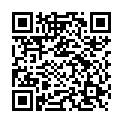|
|
|
| Module code: WIBAS-430E |
|
|
2U (2 hours per week) |
|
2 |
| Semester: 4 |
| Mandatory course: yes |
Language of instruction:
English |
Assessment:
Written exam
[updated 30.07.2021]
|
WIBAS-430E (P450-0034) Industrial Engineering, Bachelor, ASPO 01.10.2007
, semester 4, mandatory course
|
30 class hours (= 22.5 clock hours) over a 15-week period.
The total student study time is 60 hours (equivalent to 2 ECTS credits).
There are therefore 37.5 hours available for class preparation and follow-up work and exam preparation.
|
Recommended prerequisites (modules):
None.
|
Recommended as prerequisite for:
|
Module coordinator:
Prof. Dr. Thomas Tinnefeld |
Lecturer:
Corinna Huth (exercise)
[updated 25.03.2011]
|
Learning outcomes:
After successfully completing this module, students will be familiar with the relevant themes and parts of a presentation. They will have mastered the necessary phrases, structures and common wordings. They will possess solid knowledge about presentation techniques, structure and how to deliver a presentation (e.g. body language, visualization and interaction with the audience) and will be able to create and hold their own presentation on a given topic.
Students will be able to extract the most important information from a longer, moderately difficult text on the topic of intercultural communication.
They will be able to understand simple and moderately difficult longer texts dealing with the topic of intercultural communication and to extract the most important information and statements from them.
Students will be able to express themselves in a comprehensible and effective manner on a thematically limited catalog of issues and areas of activity from the field of intercultural business communication and to actively participate in conversations and discussions on this topic at an intermediate level.
Students will be able to express themselves in longer, coherent sentences on a given problematic intercultural situation (cross-cultural incident) by outlining core information, experiences, and opinions in writing.
[updated 30.07.2021]
|
Module content:
Effective presentations
Preparing
Getting started
Signposting
Visuals
Conclusion
Intercultural business communication
Importance of and barriers to intercultural communication
Cultural dimensions
Intercultural business communication
[updated 30.07.2021]
|
Teaching methods/Media:
Computers, sildes and the blackboard will be used in this module. The following video courses will be used: Past and Present of a Global Player (EUROKEY Software GmbH), Professional Presentations (Malcolm Goodale), Cambridge University Press and TechnoPlus Englisch (EUROKEY Software GmbH).
[updated 30.07.2021]
|
Recommended or required reading:
Bosewitz, René/ Kleinschroth: The Way Things Work Technisches Englisch Für Business und Alltag.
Bowen, Tim: Build Your Business Grammar.
Brieger, Nick / Pohl, Alison: Technical English Vocabulary and Grammar.
Collins, John: Perfect Presentations.
Emerson, Paul: Business Builder (Intermediate Teachers Resource Series), Modules 1-9.
Farthing, Joni: Situational Mazes Problem-Solving in English
Grussendorf, Marion: English for Presentations.
Howard, Godfrey: Getting Through! How To Make Words Work
Johnson, Michael: Business Buzzwords The Tough New Jargon Of Modern Business
Rosenberg, Marjorie: Communicative Business Activities.
Language magazine: Business Spotlight (up from 2002).
Utley, Derek: Intercultural Resource Pack.
Wagner, Georg / Lloyd Zörner, Maureen: Technical Grammar and Vocabulary.
Zürl, Karl-Heinz: Modern Business English for Industrial Engineers.
[updated 30.07.2021]
|

